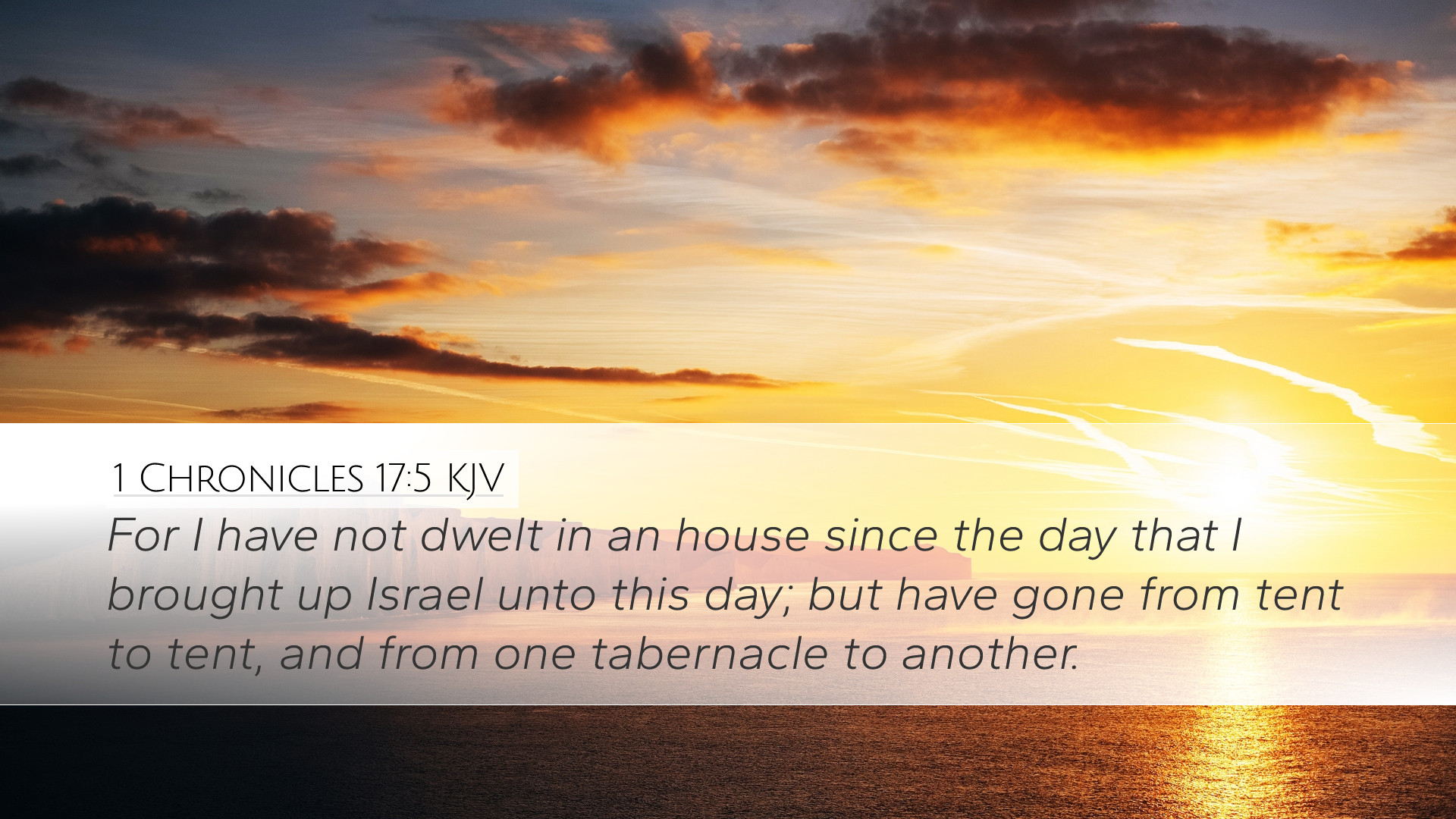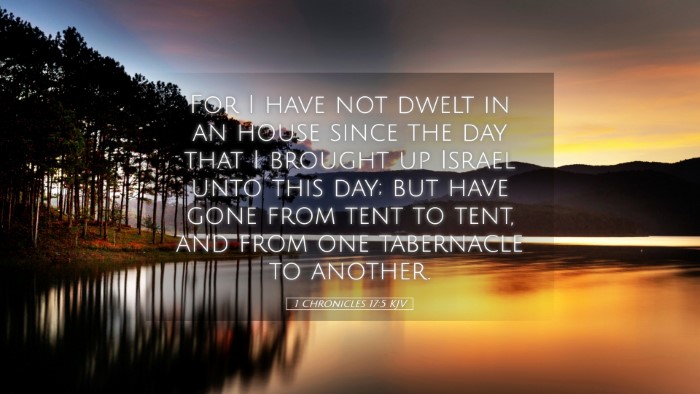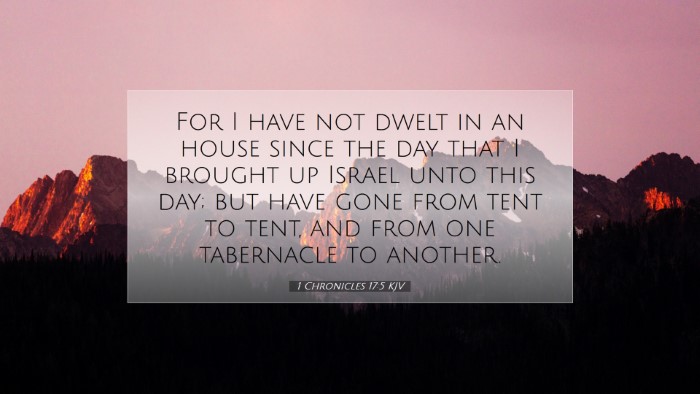1 Chronicles 17:5 - A Commentary
Bible Verse: "For I have not dwelt in an house since the day that I brought up Israel unto this day; but have gone from tent to tent, and from one tabernacle to another."
Introduction
This verse is part of a broader context wherein the Lord conveys His thoughts to David regarding the construction of a temple. It highlights God's presence among His people not in a stately palace but in a transient tent. This commentary seeks to provide insights from public domain sources such as Matthew Henry, Albert Barnes, and Adam Clarke, to deepen understanding of this significant passage.
Contextual Overview
The context of 1 Chronicles 17:5 involves God’s rejection of David's desire to build a temple for His name. Rather, God reminds David of His faithfulness and the manner of His dwelling among them throughout their history. Understanding this verse requires an appreciation of Israel’s journey from Egypt to the Promised Land and the significance of God's mobile dwelling.
Insights from Commentaries
Matthew Henry's Commentary
Henry emphasizes that God's choice to dwell in a tent illustrates His condescension to His people. He notes that even though God is sovereign and eternal, He chose a humble dwelling among His people, demonstrating that His presence is not limited to grand structures. Henry points out:
- Divine Presence: God's presence in the tent indicates His willingness to be accessible to His people.
- Humility of God's Dwelling: The contrast between God's majesty and His humble dwelling emphasizes His grace and mercy.
- Sign of Transition: The movement from tent to tent signifies the transient nature of Israel's journey and God's guidance.
Albert Barnes' Notes on the Bible
Barnes offers a detailed exploration of the implications of God's statement about dwelling in a tent. He remarks on the significance of God’s decision to avoid a permanent structure, indicating:
- Covenantal Relationship: The use of a tent signifies a relational and dynamic aspect of God's covenant with Israel.
- Historical Reflection: God's reference to His migratory dwelling recalls the wilderness wandering, providing a reminder of their dependence on His guidance.
- Foreshadowing Future Reality: The temporary nature of the tent foreshadows the coming of Christ, whose incarnation embodied God's presence among humanity.
Adam Clarke's Commentary
Clarke provides a contextual and theological analysis of God's presence. He observes that:
- Symbolic Meaning of Tents: Tents represent a more accessible form of divine dwelling compared to the grandiosity of stone temples.
- God's Proximity to His People: The tent signifies God's desire to dwell among His people wherever they might be, reinforcing His omnipresence.
- Encouragement for David: This reminder serves to comfort David in his aspirations while redirecting focus on God's eternal plan over physical structures.
Theological Implications
The implications of 1 Chronicles 17:5 extend beyond mere historical data. Theologically, this verse emphasizes several key themes:
- God’s Immanence: The fact that God chose to dwell in a tent indicates His desire for intimacy with His creation.
- Faithfulness in Transience: Despite the shifting nature of the Israelites’ location, God is portrayed as a consistent and faithful presence.
- Redemptive History: God’s movement from tent to "temple" reaches its culmination in the New Testament with Christ, who is often referred to as Emmanuel, God with us.
Application for Today
For pastors, students, theologians, and scholars, the lessons from 1 Chronicles 17:5 resonate profoundly:
- Simplicity in Worship: Understanding that God prioritizes personal relationship over grandiose structures encourages humility in worship practices.
- Recognizing God’s Presence: Emphasizing God’s accessibility in all circumstances can aid believers in recognizing His guidance in their everyday lives.
- Dynamic Faith: The transient nature of the tent serves as a reminder of the ever-evolving journey of faith, encouraging believers to remain adaptable to God’s leading.
Conclusion
1 Chronicles 17:5 encapsulates a significant theological truth—the Lord's choice to dwell among His people in the simplicity of a tent speaks volumes about His character and relational desire. By synthesizing the insights of classical commentators, one clearly sees the invitation to recognize God's presence, appreciate His humility, and understand the depth of the covenant relationship that extends into the New Testament and beyond.


